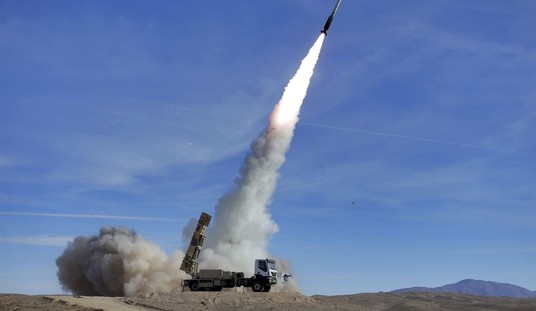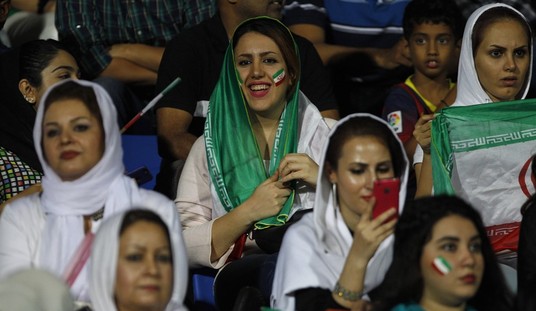Much of the mainstream media has labeled our new president a strategic thinker or an intellectual. No doubt he is educated and articulate. However, after seeing the results of our president’s first trip overseas, it is clear that he is making some critical strategic mistakes that could have lasting effects on our foreign policy and national security.
Joe Scarborough, in a Tweet (a post on Twitter for those not up on microblogging) on April 8, asked: “Another question for Republicans: Though we are all upset with his economic plans, can we not admit he had a good trip overseas?” Mr. Scarborough, let me assure you that we are not just upset with his economic plan.
For all the talk of Obama’s “best and brightest” advisers (a harkening back to a president elected nearly a half-century ago with a far different approach to everything from taxes to American military power), we have yet to see a stark, visionary approach to the foreign policy issues this president needs to confront. From reading the transcripts of his remarks in London, France, and Turkey, we can discern that he wants to be more engaged globally. But there is no real substance or meaning as far as how he defines this engagement. On April 3 in Strasbourg, the president repeated a line he often states: “This is our generation. This is our time. And I am confident that we can meet any challenge as long as we are together.” Very beautiful language, but again there is no substance behind the empty rhetoric.
With our brave service members in harm’s way in Iraq and Afghanistan, it only makes sense that his foreign policy priorities focus on both those nations. Unfortunately, the president failed to articulate how we will win in Afghanistan. He laid out the added 21,000 more troops he will send to the country and tasked many of those troops to embed with the Afghan National Army to help train them. Also, his plan consists of sending a civilian “surge” to the country to assist with economic development and legal issues. However, he made no statement as to their role in development or how we will guarantee their security.
The highlight of the president’s Afghanistan strategy is the economic aid package of $1.5 billion a year for five years. Again, no oversight is given to our taxpayer dollars handed over to a Pakistani government on the verge of collapse. The president assembled his key national security advisers — his best and brightest — and this is the best they can come up with?
He never discussed an effective counterinsurgency effort against the Taliban. He never mentioned that the Taliban in Pakistan, run by Behtullah Mehsud (more brutal than Mullah Omar’s Afghanistan Taliban), has called for attacks against our country. He makes no reference to the Taliban and al-Qaeda attacking our supply lines throughout the Torkham Gate between Pakistan and Afghanistan. Vice President Biden has said we are in Afghanistan to fight al-Qaeda yet he renounces fighting the Taliban, suggesting that these two things are reconcilable. He recently said on CNN that only 5% of the Taliban are extremists and 70% are persuadable. As usual, the media forgot to ask him where he got these numbers and what Taliban he was referring to.
The president’s naïveté in expecting a new age of international cooperation was revealed when NATO rejected his request for additional combat troops. NATO did agree to send 3,000 troops, but they will quickly depart after the August elections. The fight in Afghanistan is growing in unpopularity across Europe. This should be no surprise; NATO troops have been in that country since the toppling of the Taliban, although several of the countries which sent troops were prohibited from actually engaging with the enemy. British and Canadian troops have been battling the Taliban in the southern part of the country while German troops in the northern half were relegated to strictly surveillance.
President Obama needs to rethink his counterinsurgency strategy in Afghanistan and concentrate on rooting out the Taliban, al-Qaeda, and the narcotics network they rely on to fund their activities. It was not until October 2008 that NATO troops could combat the drug cartels in Afghanistan. (Before October, they were not allowed to destroy narcotics factories or engage drug facilitators. The logic there was that locals would be hostile to having their cash crop wiped out.) Part of a renewed strategy should be alternative cash crops, while understanding that opium production is incredibly lucrative. However, an attempt must be made to persuade farmers there to contribute to countering the proliferation of narcotics.
An increase in troops, roughly 15,000, will be needed to secure our logistical lines and increase our efforts on civil affairs. More civilians who have expertise in critical infrastructure and development are needed, but they must have the security to do their jobs. Our forces have been kept out of parts of the Helmland province in Afghanistan, a key opium producing area and Taliban stronghold. It is time to attack those cartel networks. Also, it is time to pressure the Pakistani government to conduct a focused counterterrorism effort in their own cities like Quetta. Behtullah Mehsud has free reign to operate there and we must tie U.S. taxpayer aid to progress in rooting out the enemy. In addition, we must be cognizant of other influences in Afghanistan apart from Pakistan, like the encroachment of Iran and its specialized militant forces, the Quds Force.
The battle in Afghanistan will be an enduring struggle and has implications for regional stability. We have reconciled with many of our former enemies in past battles and there will be some Taliban elements we should persuade to lay down their weapons. But we cannot be so naïve to think extremists who deny basic human rights to their own people will be open minded to change. The president must do a better job of articulating the threats and explaining how to combat them. The campaign season is over and it is time to give the facts to the American people.









Join the conversation as a VIP Member